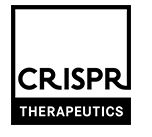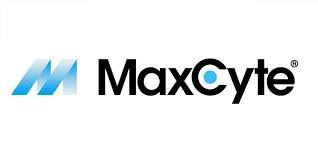预约演示
更新于:2025-10-01
Exagamglogene Autotemcel
更新于:2025-10-01
概要
基本信息
药物类型 CRISPR/Cas9 |
别名 Autologous CRISPR-Cas9 modified CD34+ hHSPCs、CRISPR-Cas9-based-therapy、Exa-cel + [4] |
靶点 |
作用方式 抑制剂 |
作用机制 BCL11A抑制剂(BCL11A蛋白抑制剂)、Gene transference(基因转移) |
在研适应症 |
非在研适应症- |
非在研机构- |
最高研发阶段批准上市 |
首次获批日期 英国 (2023-11-15), |
最高研发阶段(中国)- |
特殊审评优先审评 (美国)、快速通道 (美国)、孤儿药 (美国)、罕见儿科疾病 (美国)、孤儿药 (欧盟)、优先药物(PRIME) (欧盟)、再生医学先进疗法 (美国)、孤儿药 (英国)、附条件批准 (英国)、优先审评 (加拿大) |
登录后查看时间轴
关联
8
项与 Exagamglogene Autotemcel 相关的临床试验NCT05951205
A Phase 3 Study to Evaluate Efficacy and Safety of a Single Dose of Exa-cel in Subjects With Severe Sickle Cell Disease, βS/βC Genotype
The purpose of the study is to evaluate the efficacy and safety of CTX001 (exa-cel) in adolescent and adult participants with severe sickle cell disease (SCD), βS/βC genotype (HbSC).
开始日期2027-07-31 |
申办/合作机构 |
ChiCTR2300073795
An International, Multicenter, Phase I Open Label Study to Evaluate Safety and Efficacy of Administration of Autologous CD34+ Cells Gene Edited Ex Vivo Using a CRISPR/AAV6 Platform to Introduce a Codon Optimized cDNA Version of the Red-Cell Type Pyruvate Kinase Genein Adult and Pediatric Patients with Severe Pyruvate Kinase
开始日期2023-11-09 |
申办/合作机构 |
NCT05477563
A Phase 3b Study to Evaluate Efficacy and Safety of a Single Dose of Autologous CRISPR Cas9 Modified CD34+ Human Hematopoietic Stem and Progenitor Cells (CTX001) in Subjects With Transfusion-Dependent β-Thalassemia or Severe Sickle Cell Disease
This is a single-dose, open-label study in participants with transfusion-dependent β-thalassemia (TDT) or severe sickle cell disease (SCD). The study will evaluate the safety and efficacy of autologous CRISPR-Cas9 modified CD34+ human hematopoietic stem and progenitor cells (hHSPCs) using CTX001.
开始日期2022-08-02 |
申办/合作机构 |
100 项与 Exagamglogene Autotemcel 相关的临床结果
登录后查看更多信息
100 项与 Exagamglogene Autotemcel 相关的转化医学
登录后查看更多信息
100 项与 Exagamglogene Autotemcel 相关的专利(医药)
登录后查看更多信息
38
项与 Exagamglogene Autotemcel 相关的文献(医药)2025-09-01·STEM CELLS AND DEVELOPMENT
Advances in Sickle Cell Disease Treatment: A Comparative Review of Hematopoietic Stem Cell Transplantation and Gene Therapy (Casgevy and Lyfgenia)
Review
作者: Kawari, Mohammed ; Abdelazim, Omer Tarig Fathi ; Sharafeldin, Abu-Baker Khalid ; Hasan, Zahra Abdulla Isa Yusuf ; Toorani, Zainab Abdulmajeed
Sickle cell disease (SCD), affecting approximately 2.1% of Bahrain's population, is a prevalent inherited disorder that necessitates effective treatments and long-term management. This review highlights two innovative gene therapies (Casgevy and Lyfgenia) and compares their efficacy and safety with hematopoietic stem cell transplantation (HSCT)-the only curative option currently available for SCD. While HSCT offers a 90% success rate with suitable donors, its limitations include donor scarcity and toxicity. Gene therapies like Casgevy and Lyfgenia show promising efficacy in reducing SCD complications while bypassing such limitations. In the Kingdom of Bahrain, the Bahrain Oncology Center approved Casgevy in December 2023 and completed its first patient treatment in mid-February 2025, making Bahrain an early adopter. This milestone marks a crucial moment in the history of both SCD and gene therapies and thus warrants exploring the considerations revolving around their implementation. Although these therapies seem to offer hope for patients ineligible for HSCT, their long-term outcomes remain unassessed-further studies with extended follow-up are needed to confirm their safety and durability.
2025-08-01·VALUE IN HEALTH
Implementing the Generalized Risk-Adjusted Cost-Effectiveness Model for Sickle Cell Disease: A Case Study
Article
作者: Land, Natalie ; Hasan, Md Tahsin ; Graf, Marlon ; Mulligan, Karen ; Chou, Jacquelyn W ; Kleintjens, Joris
OBJECTIVES:
This study aims to quantify the societal value of curing sickle cell disease by implementing the generalized risk-adjusted cost-effectiveness (GRACE) method, thereby adjusting for factors such as disease severity, reduction of uncertainty in treatment outcomes, and trade-offs between quality of life (QoL) and life expectancy in a cost-effectiveness analysis (CEA).
METHODS:
Using GRACE, we recalibrated a recent health technology assessment in sickle cell disease for 2 gene therapies, lovo-cel and exa-cel. The GRACE framework modified existing CEA by adjusting willingness-to-pay thresholds based on untreated illness severity, incorporating treatment outcome uncertainty, and varying the substitution rates between life expectancy and QoL across health states.
RESULTS:
Implementing the GRACE framework resulted in a 6% reduction in both direct and societal incremental cost-effectiveness ratios for lovo-cel and exa-cel, demonstrating a decrease from $192 651 and $161 816 to $182 036 and $152 900 per quality-adjusted life year, respectively. Additionally, willingness-to-pay thresholds increased by approximately 50%, reflecting a higher valuation of treatments under GRACE. GRACE-adjusted estimates suggest that lovo-cel and exa-cel are cost-effective from both direct payer and societal perspectives.
CONCLUSIONS:
The GRACE method offers a more comprehensive and precise estimation of societal value, leading to more efficient and equitable resource allocation. This study not only highlights the limitations of traditional CEA in capturing the total societal value of treatments for severe diseases but also provides a roadmap for incorporating GRACE model elements into health technology assessments, thereby facilitating a broader acceptance of innovative therapies that significantly enhance patient QoL.
2025-07-14·Cardiovascular & hematological disorders drug targets
Updated Review of Current Therapeutic Approaches for the Management of Sickle Cell Disease
Article
作者: Bhardwaj, Harish ; Jangde, Rajendra Kumar ; Puri, Devwati ; Verma, Bhupendra
Abstract::
Sickle cell disease is a severe genetic blood disorder marked by the production of abnormal
hemoglobin (HbS), leading to sickle-shaped red blood cells that obstruct blood flow and
cause various problems, such as the increased risk of infection, persistent anemia, acute pain episodes,
and organ damage. Roughly 100,000 Americans suffer from SCD, with approximately
40,000 of them being children. Black people have the highest frequency of the disease. There are
six Food and Drug Administration (FDA)-approved drugs, hydroxyurea, L-glutamine, crizanlizumab-
TMCA, voxelotor, Casgevy, and Lyfgenia, that are used for the prophylaxis and treatment
of serious complications of sickle cell disease. Current treatment approaches focus on symptom
management, including pain control, hydroxyurea to reduce pain crises, and transfusions for severe
anemia. Based on the clinical trial results, L-glutamine and crizanlizumab-TMCA prevent
cell damage and hemoglobin sickling by reducing the sickle cell crisis episodes. At the same time,
voxelotor improves hemoglobin oxygen-binding capacity in patients with SCD. Novel therapies,
such as gene therapy and clustered regularly interspaced short palindromic repeats/CRISPR-associated
protein 9 (CRISPR-Cas9) technology, aim to correct the genetic defect. At the same time,
stem cell and bone marrow transplants offer potential cures but are limited by the availability of
donors and side effects. Ongoing research seeks to enhance treatment options and develop potential
cures for SCD. This review attempts to present a comprehensive overview of the current therapeutic
approaches and newly developed innovative medicines to combat and potentially eradicate
SCD with an emphasis on their mechanisms, efficacy, and clinical implications.
839
项与 Exagamglogene Autotemcel 相关的新闻(医药)2025-09-28
·浩悦研究
浩悦价值观
使命 以资本助力,成就卓越的医疗健康企业
愿景 成为专注中国医疗健康行业最优秀的产业投行
浩悦资本创立于2014年1月,是中国领先的专注医疗健康行业的产业投行。公司总部位于上海,在北京、深圳、香港、新加坡设立区域办公室。浩悦资本始终致力于以资本助力,以研究驱动,帮助中国医疗行业优秀企业成功对接资本市场,为客户创造增值价值。浩悦资本长期密切追踪医疗健康投资市场动态和投资趋势,研究领域及交易范围覆盖创新医药、创新医疗器械、IVD与生命科学、健康服务和智慧医疗等多个细分赛道。截至2024年,浩悦资本共完成数百个项目。十年来,浩悦资本深耕私募融资、并购整合和上市公司复杂交易,在医疗行业各细分赛道继续保持全面领先。
01
表观遗传技术概况
——
01
表观遗传学简介
表观遗传学由康拉德・沃丁顿于 1942 年提出,可经有丝分裂或减数分裂传递的遗传表型。近来,表观遗传性状被精准定义为 “不改变 DNA 序列,却由染色体变化引发的稳定且可遗传的表型”。表观遗传学的影响兼具积极与消极两面。从积极角度看,表观遗传调控因子能通过多种机制协同提升肿瘤免疫原性,比如诱导原本受转录抑制的肿瘤相关抗原重新生成表达,促进新抗原表达以及主要组织相容性复合体(MHC)的加工与呈递,还能激活肿瘤的免疫原性细胞死亡。然而,若生物体暴露在化学物质、药物、应激或感染等环境因素中,表观遗传学又会与免疫衰老相互作用,进而促成衰老细胞的积聚。
在当今医学研究领域,基因沉默技术的蓬勃发展为治愈各类遗传性与获得性疾病开辟了新路径。其中,永久性表观遗传沉默尤为值得关注,它通过修饰DNA周围的化学结构而非改变DNA序列本身来抑制特定基因表达,是一种极具潜力的治疗手段。该技术既能精准靶向并沉默疾病相关基因,又能守护基因组完整性,降低潜在遗传风险。其通过修改DNA周围的表观遗传标记,如DNA甲基化、组蛋白修饰等抑制特定基因表达来直接影响基因转录的启动与进程。以DNA甲基化为例,其常发生在基因启动子区域,导致转录机制难以识别和结合,进而实现基因沉默。即借助融合转录抑制因子的dCas9蛋白等特定编辑复合物精准定位目标基因的启动子区域,介导甲基化或其他表观遗传修饰,最终实现基因表达的静默。相较于传统基因敲除技术,该技术具备可逆性与高度特异性优势,可在不改变基因组序列的前提下,有效调控疾病相关基因。
作为基因沉默的核心实现方式,表观遗传编辑技术的最新成果,已在细胞与动物模型中展现出靶向特定基因并使其沉默的巨大潜力。这一技术的突破,为精准医疗搭建了关键桥梁,尤其在遗传性疾病和部分癌症治疗领域,大幅拉近了我们与精准医疗目标的距离。
总体而言,表观遗传编辑技术的发展为基因治疗领域注入了新活力。它不仅是探究基因表达调控机制的有力工具,更为遗传性疾病,代谢性疾病和癌症等病症的治疗开辟了新方向。随着技术的持续完善与落地应用,未来有望形成更精准、更安全的基因治疗策略。
02
表观遗传编辑技术简介
1.技术原理
表观遗传编辑已发展成为一种在体外及体内调控基因表达的强有力手段,能够在不改变基础DNA序列的前提下,通过对基因表达进行调控来实现治疗效果。其核心机制是诱导位于启动子区域的CpG二核苷酸位点发生DNA甲基化,从而将基因锁定在沉默状态,且这种沉默状态具有持久性,能够通过DNA甲基转移酶DNMT1在细胞分裂过程中得以稳定传递;DNMT1识别由DNA复制产生的半甲基化状态,并将甲基基团重新添加到新合成的胞嘧啶上。与依赖于单链DNA断裂(碱基编辑和先导编辑)或双链DNA断裂(CRISPR-Cas9核酸酶编辑)的基因编辑方法相比,靶向表观遗传编辑不会破坏DNA序列的完整性,从而避免了潜在的基因毒性风险,是一种极具前景的基因沉默(靶向甲基化)或激活(靶向去甲基化)策略。
治疗原理:目前表观遗传修饰和转录调控的设计主要基于核酸酶的结合运用,其中以工程化缺陷型核酸酶(dCas9)的结合最为有效。dCas9是Cas9蛋白的突变体,即Cas9蛋白的RuvC1和HNA两个核酸酶活性区域同时发生突变。因此,dCas9蛋白的内切酶活性完全消失,只保留由gRNA引导进入基因组的能力。
2.技术迭代背景
基因编辑技术是指能够对特定染色体区段或基因进行核苷酸碱基的定点重组、敲除和定点插入/替换的技术。作为21世纪生命科学领域最重要的突破性、革命性技术之一,基因编辑技术的开发与应用被迅速地推广至包括人类在内的动植物基因功能、遗传改良和疾病治疗等领域,极大地推动了生物学各个学科的发展,使生物基础科学和应用科学进入了前所未有的广度和深度。
CRISPR-Cas9技术
传统CRISPR基因编辑系统通过Cas9核酸酶介导的DNA双链断裂实现基因敲除或插入,尽管效率较高,但其依赖细胞内的非同源末端连接等修复途径,往往导致插入缺失突变等不可控的编辑结果,这一局限性严重阻碍了其在精准基因治疗特别是点突变修复中的应用。
碱基编辑技术
碱基编辑技术通过将催化缺陷型的Cas9蛋白(如dCas9或nCas9)与特定的脱氨酶融合,可在不引起DNA双链断裂的情况下,直接对目标位点的单个碱基进行化学修饰,从而实现C→T(或G→A)或A→G(或T→C)的高精度、高效率替换,显著降低了indel突变产生的风险,但是依旧无法完全规避脱靶或者突变的风险。
表观遗传编辑技术
表观遗传学,作为一种可逆遗传机制,无需改变 DNA 序列,而是借助对 DNA 与组蛋白的修饰,调控基因表达,成为把控细胞分化、胚胎发育等关键生物过程的核心机制 。在多样的表观遗传修饰里,DNA 甲基化是研究最为广泛的机制之一。当基因启动子区域出现特定 DNA 甲基化,会抑制基因转录;而去除甲基化修饰,则可诱导基因表达。由于表观遗传修饰能随细胞 DNA 复制,精准传递给子代细胞,这也让科研人员看到克服现有基因编辑疗法潜在问题的可能 —— 传统疗法易引发患者非靶向 DNA 序列不可逆改变,进而增加癌症等疾病风险 。相较于传统基因编辑技术,表观遗传编辑技术不改变DNA序列,避免了DNA双链断裂引发的染色体异常风险,不导致基因表达显著改变,且在肝细胞分裂过程中靶向甲基化状态稳定维持。此外,利用融合去甲基化结构域的靶向试剂,可实现表观遗传编辑的可逆性,为特定场景下的基因表达调控提供了灵活策略。
3.表观遗传编辑技术优势分析
表观遗传学是一种可逆遗传机制,无需改变 DNA 序列,借由对 DNA 与组蛋白的修饰调控基因表达,是把控细胞分化、胚胎发育等关键生物过程的核心机制 。在多样表观遗传修饰里,DNA甲基化研究广泛,基因启动子区域特定 DNA 甲基化会抑制基因转录,去除修饰则诱导表达,且其能随细胞 DNA 复制传递给子代细胞,为克服传统基因编辑疗法痛点(易致患者非靶向 DNA 序列不可逆改变,增加疾病风险 )提供可能。
表观遗传编辑相较传统基因编辑疗法优势显著,安全性上,无需直接改 DNA 序列,可调节基因表达与蛋白水平,规避CRISPR等工具引发的非预期DNA切割及相关副作用,无靶点永久性DNA修改风险 ,减少了潜在的基因组不稳定性和非目标效应,提高了治疗的安全性。同时相较于永久改变DNA序列的CRISPR/Cas9系统,表观遗传编辑的效果理论上是可逆的,这为控制和调节治疗提供了更大的灵活性。
疾病治疗潜力广,因不改变DNA本身,能为常见疾病治疗添安全保障,适配多数与不健康基因表达水平相关疾病的干预;突破突变类型限制,凭统一策略抑制各类突变蛋白,让单一方案覆盖广泛突变,提升治疗灵活性与适用性 ;应对衰老相关疾病,有望逆转随年龄增长、在不同组织细胞中加速衰老的表观遗传学变化,为疾病延缓、治疗开辟新路径。
不过,在表观遗传编辑等基因疗法研究应用中,递送系统优化是普遍关键难题,能否将治疗药物有效递送至特定细胞、组织决定疗法成败,递送难题是行业主要瓶颈之一。针对疾病关键病灶、器官治疗时挑战更突出,如脂质纳米颗粒(LNP)载荷强却易在肝脏积累,腺相关病毒(AAV)载体适用广但载荷容量小,设计适配载体限制、保功能性与效率的编辑工具成行业挑战。
4.技术临床应用潜力
基因编辑疗法作为精准医疗领域的新兴力量,展现出重塑现有医疗体系的巨大潜力。尤其是随着Casgevy这一里程碑式产品获得批准,基因编辑和细胞疗法迅速成为医学研究的热点。这一背景下,表观遗传编辑技术以其无需更改DNA序列即可精确调控基因表达和蛋白质水平的特性而受到关注。这种技术不仅安全性更高,而且应用前景更广阔。随着众多医药企业在表观遗传药物研发上取得进展,预示这类疗法在未来临床上可能具有的巨大潜力。
◈遗传性疾病的治疗:对于那些由特定基因突变引起的遗传性疾病,表观遗传编辑技术能够直接靶向并沉默这些致病基因,从而根除疾病的根本原因。
◈癌症治疗:通过精准地调控癌细胞中的关键基因,例如促癌基因或肿瘤抑制基因,表观遗传编辑有望成为一种有效的癌症治疗手段,尤其是在传统治疗(如化疗和放疗)效果不佳的情况下。
◈感染性疾病的治疗:针对某些病毒性疾病,例如HBV/HIV/AIDS,表观遗传编辑技术可以通过靶向并沉默病毒DNA来阻断病毒复制,为治疗提供新的策略。
二
未来表观遗传编辑技术可能的发展方向
——
01
技术在医药行业进展
表观遗传编辑疗法作为一种新方法,极大的扩展了基因治疗的版图,虽然目前仍处于早期阶段,但其应用潜力与市场蓝图吸引了一批前沿药企的关注,着手该领域的进程布局。
继基因编辑领域取得成功之后,表观遗传编辑技术正迅速发展并拓展其应用领域。业内专家对其广泛的应用前景和安全性持乐观态度且他们认为表观遗传编辑将在未来成为市场上的一项重要技术。伴随着这种趋势,多家创新企业相继成立;同时,众多大型医药公司也开始投入资源,利用表观遗传编辑技术进行新药研发。
今年1月,基因编辑领域先驱张锋教授创立了Moonwalk Biosciences公司,并成功募集了5700万美元的种子和A轮融资。该公司旨在通过靶向表观遗传组,将细胞重编程到健康状态。根据新闻稿,Moonwalk是首家将表观遗传发现平台与精确工程化技术相结合的公司,使得靶向表观遗传组,扩展复杂疾病的靶标范围成为可能。
今年年初,诺和诺德(Novo Nordisk)与Omega Therapeutics达成了研究合作,利用Omega公司的专有平台技术共同开发一种旨在增强代谢活性的表观基因控制器,作为肥胖管理的潜在新疗法。此外,吉利德(Gilead)旗下的Kite公司也与Epic Bio达成研究合作和授权协议,利用Epic Bio的表观遗传编辑平台来开发下一代癌症细胞疗法。
伴随着行业内的活跃动态,多种表观遗传编辑疗法正在研发中。2月底,意大利IRCCS圣拉斐尔科学研究所的研究团队在《自然》杂志上发表了他们利用表观遗传编辑技术成功治疗高脂血症小鼠模型的成果。这项研究通过单次表观遗传编辑治疗在一个月内显著降低了小鼠体内低密度脂蛋白胆固醇(LDL-C)水平,并在长达近一年的时间里持续降低了PCSK9的表达水平。这一突破性成果验证了表观遗传编辑技术在沉默基因方面的长期效力,为未来开发无需通过DNA切割、能够“一次性”治愈疾病的治疗方法提供了可能性。
Chroma Medicine开发的表观遗传编辑平台在2023年5月完成了体内概念性验证,。在食蟹猴中观察至少五个月的情况下,单次注射LNP 封装的 EE mRNA和gRNA,能够将 PCSK9 蛋白水平降低约 90%,并伴随低密度脂蛋白胆固醇(LDL-C)水平降低约70%。效果持续至少3个月,且未观察到明显副作用。这些研究数据不仅证明了其编辑器的高效性和特异性,还展示了其广泛的应用潜力和模块化特性。
当前,一些表观遗传编辑疗法已进入临床开发阶段,未来可期。Omega Therapeutics正在进行OTX-2002治疗肝癌的1/2期临床试验,初步结果显示,接受OTX-2002治疗后,患者体内游离DNA中的MYC甲基化信号高度增加,表明了高度特异性的目标基因位点靶向以及预期的表观遗传变化。甲基化信号的增加持续存在于为期两周的给药间隔期间。所有8例患者中,针对MYC的表观遗传调节转化为快速、稳健和持久的MYC表达下调,为OTX-2002治疗提供了初步的临床支持。
同时,Tune Therapeutics开发的针对乙型肝炎(HBV)的潜在"first-in-class"表观遗传沉默剂TUNE-401,其临床前研究数据证明了TUNE-401在一系列HBV模型中持续抑制病毒复制的能力。2024年11月19日,Tune Therapeutics 首席科学家Brian Cosgrove分享了新的体外和体内数据,展示了Tune经过临床优化的肝脏靶向LNP-RNA表观沉默药物 (Tune-401),该药物能够在人类细胞和“真正感染”的FRG小鼠模型中几乎完全抑制 HBV RNA。
◈对受感染原代人肝细胞(PHH) cccDNA 中3.5 kb HBV RNA 的抑制率高达 99.99%;
◈相应减少PHH中的细胞外乙型肝炎表面抗原 (HBsAg) – 乙型肝炎感染的主要指标;
◈在瞬时递送至携带HBV的细胞系后,病毒沉默的持久性超过550天 – 这代表抑制性表观遗传标记在超过275轮细胞分裂中持续存在。
公司于2025年1月7日获得香港卫生署颁发的TUNE-401临床试验证书。这标志着Tune-401在全球第二次获得1b期临床试验的批准(第一次是2024年11月14新西兰药品和医疗器械安全局批准TUNE-401的1b期临床试验。)。
Epic Bio也在积极推进其表观遗传编辑技术的临床应用,该公司计划于今年上半年为其面肩肱型肌营养不良症(FSHD)候选药物EPI-321提交IND申请。EPI-321基于Epic Bio专有的表观遗传编辑平台所设计,能够精确调节基因表达,且其作用不受基因突变类型的限制。Epic Bio希望EPI-321能在2028年前获得批准,为FSHD患者提供新的治疗选择。
表观遗传编辑技术的兴起标志着医学领域进入了一个全新的时代,这一革命性的治疗手段为治疗众多疾病提供了新的希望。随着这项技术的快速发展及治疗靶点的日益丰富,表观遗传编辑技术正在稳步从实验室研究向临床转化。随着越来越多的疗法进入临床试验阶段,这一领域的发展潜力令人瞩目,我们期待它在医学领域取得进一步的突破和成功应用。
02
农业
植物表观育种是一种利用表观遗传变异进行作物生长发育的方法,在作物改良领域具有广泛应用。表观遗传修饰可以通过提供有用的标记来改良育种,同时还考虑表观基因组多样性以预测植物表现并提高作物产量。
传统作物育种包括杂交、选择所需性状的遗传变异,导致遗传基础缩窄和遗传多样性缺失,从而阻碍作物改良。表型性状受遗传学和表观遗传学影响,利用表观遗传变异或表观基因组变化可以提高作物对环境条件变化的响应,保证农业产量和质量。先前研究已经鉴定出许多调控所需性状的基因或QTL(quantitative trait locus),但遗传力缺失仍然是影响表型的关键障碍。
在植物科学领域,一场由表观遗传学提升作物抗逆能力并实现高产育种的革命正在悄然展开。DNA甲基化、组蛋白修饰以及非编码RNA等关键调控机制,在其中发挥着至关重要的作用。从提升作物抗逆能力到实现高产育种,从种子萌发到精细调控开花过程,表观遗传学都发挥着至关重要的作用。不仅塑造了植物对复杂环境的适应能力,更为农业的可持续发展带来了全新的希望。
在提高农作物产量方面,基因编辑技术展现出了巨大的潜力。通过编辑与植物生长发育相关的关键基因,可以优化植物的光合作用、营养吸收和生长调节等过程,从而提高农作物的生物量和产量。例如,通过对水稻、小麦等主要粮食作物的基因编辑,使其在抗逆性(如抗旱、抗寒、抗盐碱等)和营养吸收能力方面得到显著提升,在有限的耕地上实现更高的产量,这对于满足全球人口不断增长的粮食需求具有重要意义。
除了产量提升,基因编辑技术在改善农作物的品质上也发挥着重要作用。农作物的品质直接关系到食品的营养和口感,而基因编辑技术可以精准地调控与品质相关的基因,为消费者提供更加优质、安全、美味的食品。比如,通过编辑番茄的基因,使其果实中的维生素C、番茄红素等营养成分含量更高,口感更佳;或者通过调控水稻中的淀粉合成基因,培育出直链淀粉含量适宜的高品质大米品种,满足不同消费者的需求。
在抗病虫害方面,基因编辑技术同样发挥着关键作用。传统的农业病虫害防治主要依赖化学农药,这不仅会对环境和生态造成严重破坏,还可能导致病虫害的抗药性问题日益严重。而基因编辑技术为病虫害防治提供了一种绿色、可持续的解决方案。科研人员可以通过编辑农作物的相关基因,使其获得对特定病虫害的抗性,从而减少农药的使用量,降低农业生产的成本和环境风险。例如,在棉花中编辑抗虫基因,使其具有抗棉铃虫的能力,大大减少了化学农药的使用。
03
合成生物学
表观遗传编辑技术在合成生物学中应用潜力巨大,它能够精准调控基因表达而无需改变DNA序列,为设计和构建具有特定功能的生物系统提供了一种新工具。通过在合成生物系统中实现对表观遗传修饰(如DNA甲基化和组蛋白修饰)的精确编程,可以实现对细胞行为、代谢通路和生物分子产物的精细控制。这使得合成生物学能够创造更高效、更稳定、更具适应性的生物器件和生物合成系统,有望在生物制造、疾病治疗和环境修复等领域带来突破性进展。
三
表观遗传编辑技术产业机会及痛点
——
与其他基因组编辑技术相比,在不改变基础DNA序列的情况下,基因表达的持久变化是表观遗传编辑的一个潜在安全优势。使用CRISPR-Cas9等传统基因编辑方法引入双链DNA断裂可能会导致染色体畸变,包括大缺失、重排或染色体畸变。此外,最近使用DNA结合结构域的编辑技术,如碱基编辑和先导编辑,依赖于单个碱基断裂(或缺口)来最终调节基因表达,并不能完全免除潜在的遗传毒性效应,当两个或多个基因同时被靶向时,这种效应可能会进一步加剧。
表观遗传编辑技术虽潜力巨大,但临床应用仍面临诸多挑战。其一,编辑效率与特异性的提升仍是研究核心,需研发更精准高效的编辑系统。其二,编辑工具的递送是关键难题,如何保障其安全且高效地抵达目标细胞并发挥作用,亟待技术创新突破。其三,长期安全性及潜在免疫反应问题,需在临床前与临床试验阶段进行充分考量和评估。其四,伦理与法律层面的问题也不容忽视,要在技术发展过程中,同步建立配套的伦理指南与法律框架,以确保技术应用的安全性与责任性。
此外,该技术由欧美率先发现并发展,核心技术被海外企业垄断,我国面临着严重的“卡脖子” 风险。因此,国内有潜力的企业在优化编辑效率与靶向性的同时,着力突破表观遗传编辑技术及递送技术的底层技术限制,是值得重点关注的发展方向。
四
国内值得关注的范式企业
——
01
微光基因
微光基因成立于2021年9月,总部位于苏州,是一家以全球领先的基因编辑底层工具技术与递送系统为核心的生物医药企业,致力突破全球专利瓶颈,开发可一次性治愈代谢疾病、感染性疾病(如乙肝、高血压、青光眼等)的突破性药物。
公司由基因编辑领域的杰出领军人物松阳洲教授创立,他曾任中山大学生命科学院长和国家“973项目”首席科学家,深耕基因编辑技术数十年,并作为该技术领域的先驱者,带领团队在世界首次进行人类胚胎利用CRISPR基因编辑的方法修复了地中海贫血疾病基因,推进基因编辑技术在胚胎干细胞的蛋白组学和功能性的研究上的里程碑发展。同时,微光基因核心产业化团队在基因编辑疗法和递送系统的产业化方面积累了丰富的经验,已成功推进多个基因管线产品的工艺开发,并开创了表观遗传基因疗法的广泛可及性。
微光基因独有的基因编辑工具进化平台,以自主知识产权为基础,开发出高效、安全的表观遗传编辑工具以及全球领先的递送系统(包括LNP和VLP)。依托成熟的mRNA生产技术和递送系统工艺,公司得以实现技术的快速迭代与广泛应用,推动肝内/肝外精准基因调控,提供兼具高安全性、高有效性和高可及性的治疗解决方案,为多个未满足的临床需求开辟全新治疗路径。公司技术平台已经对外实现多个技术授权,已经和超过8家上市公司和头部细胞治疗、合成生物学企业完成技术授权和战略合作。
在与Chroma公司的表观遗传编辑技术对比试验中,微光基因的技术展现出更优越的体内效能和安全性,彰显了其国际竞争力。目前,公司主导的管线项目进展迅速,预计于明年提交IND申报。
公司针对体内基因编辑急迫需要更合适的递送系统的技术瓶颈,成功开发了具有颠覆性优势的类病毒递送技术平台,规避开了海外对应底层专利,实现了基因编辑系统的体内高效肝外安全递送。效率处在国际顶尖水平。
02
益杰立科
益杰立科成立于2021年,致力于利用特有的表观遗传调控技术治疗多种疾病,现已布局多个管线的候选产品,覆盖眼科,神经退行性变,代谢和罕见疾病等。公司通过结合核酸酶失活的CRISPR-Cas和表观修饰系统,可以精确编辑基因组任意位点的表观修饰而不改变DNA序列,精确、安全且长效地治疗各种遗传疾病和非遗传疾病。
益杰立科实现了表观遗传编辑工具的高效靶向递送,目前已经开发了10余种基于脂质纳米颗粒或核酸聚集体的新型递送系统,使其可以优化编辑工具的组织富集、细胞靶向、溶酶体逃逸和胞内释放等多尺度过程。该技术已在肺、脾脏、肝脏、神经系统、脉络膜和角膜上皮细胞等,成功实现了高效的特异性靶向递送。
结语
——
表观遗传编辑技术是当今生命科学领域最具革命性的前沿方向之一。与传统基因编辑直接修改DNA序列不同,它通过精准修饰DNA和组蛋白上的化学标记来调控基因的“开启”或“关闭”,从而实现治疗目的而不改变遗传密码本身。这种独特机制使其具备了可逆性调控和更高安全性的潜在优势。目前,该技术已在多种疾病的临床前研究中展现出巨大潜力,例如在非人灵长类动物中成功持久降低与高脂血症相关的PCSK9基因表达,尤其在乙肝模型中深度沉默病毒抗原中已初步演示了“功能性治愈”的概念,标志着其正从理论概念走向应用现实。
其核心前景在于为众多疑难疾病提供一种全新的“一次性治疗、长期获益”的策略。无论是单基因遗传病,还是癌症、神经退行性疾病等复杂慢性病,表观遗传编辑都有望提供比现有疗法更安全、可控的治疗新范式。然而,这项技术走向广泛应用仍面临关键挑战,包括如何实现编辑器的高效、精准递送,确保长期安全性,以及最终在人体临床试验中验证其疗效。目前大多数突破性成果仍处于临床前研究阶段,未来几年是其迈向临床转化的关键时期。尽管前路挑战重重,但表观遗传编辑技术无疑为精准医疗的未来开辟了一条充满希望的新道路,有望开创一个全新的治疗时代。
本文作者:王小强 刘琛 覃珊珊
联系我们
上海办公室 Shanghai office
浦东新区海阳西路555号前滩中心2302室
Rm 2302, New Bund Center, 555 West Haiyang Rd, Pudong New Area, Shanghai
北京办公室 Beijing office
朝阳区东三环北路38号院1号楼泰康金融大厦3609室
3609, Taikang Financial Building, Building 1, Yard 38, North Rd of East 3rd Ring, Chaoyang District
深圳办公室 Shenzhen office
福田区深南大道6011-8号深铁置业大厦1205室
Rm 1205,Shenzhen Metro Property Development Building, 6011-8 Shennan Avenue, Futian District, Shenzhen
香港办公室 Hong Kong office
湾仔区骆克道33号万通保险大厦10层
10th Floor, YF Life Tower, 33 Lockhart Road, Wan Chai, Hong Kong
新加坡办公室 Singapore office
珠烈街63号华侨银行大厦东区1501室
Rm1501, 63 Chulia Street, OCBC Centre East, Singapore
项目投递 Project delivery
info@healthcarecapital.com.cn
媒体问询 Media inquiries
pr@healthcarecapital.com.cn
人才招聘 Recruit
hr@healthcarecapital.com.cn
Copyright© 2025浩悦资本. 转载请备注来源。
并购核酸药物
2025-09-23
Sept. 22, 2025 -- CRISPR Therapeutics (NASDAQ: CRSP), a biopharmaceutical company focused on creating transformative gene-based medicines for serious diseases, and Sirius Therapeutics, a clinical stage biotech company developing innovative small interfering RNA (siRNA) therapies for global markets, today announced that the first patient has been dosed in a Phase 2 clinical trial of SRSD107, a next-generation, long-acting Factor XI (FXI) siRNA for the prevention of venous thromboembolism (VTE) in patients undergoing total knee arthroplasty (TKA). SRSD107 is being co-developed by CRISPR Therapeutics and Sirius Therapeutics as part of a strategic collaboration to advance innovative treatments for cardiovascular and clotting-related diseases
“We are pleased to announce that our Phase 2 clinical trial is now underway, and the first patient has been dosed,” said Naimish Patel, M.D., Chief Medical Officer of CRISPR Therapeutics. “Until now, existing anticoagulant options have been limited by bleeding risk, frequent dosing, and complex management challenges for patients with high thrombotic risk. SRSD107 offers the potential to reduce pathological thrombosis while minimizing bleeding risk, with sustained but reversible pharmacodynamic effects and the possibility of infrequent dosing. We look forward to exploring how this differentiated approach could meaningfully improve outcomes for patients in need.”
“We are very excited to announce that the first patient has been dosed in our Phase 2 trial of SRSD107, marking a significant milestone for this program,” said Patrick Yue, M.D., Chief Medical Officer of Sirius Therapeutics. “This study will evaluate clinical efficacy as proof of concept for Factor XI inhibition using our siRNA approach, building on the positive results from our Phase 1 trials, and we look forward to the progress of this trial.”
The ongoing Phase 2 clinical trial is a randomized, multicenter, global study evaluating the safety and efficacy of SRSD107 for the prevention of VTE in patients undergoing TKA. The trial will assess the anticoagulant effects and pharmacological profile of SRSD107 and help inform dose selection for future pivotal studies, with the goal of confirming its potential as a differentiated approach for reducing thrombotic risk in patients.
SRSD107 is designed to selectively inhibit FXI, a key driver of pathological thrombosis, with minimal impact on normal hemostasis. In prior Phase 1 clinical trials conducted in Australia and China, single doses of SRSD107 were well tolerated and demonstrated strong, sustained pharmacodynamic effects, including reductions of over 93% in FXI levels, along with more than a twofold increase in activated partial thromboplastin time (aPTT) relative to baseline. These effects were sustained, with responses maintained for up to six months post-dosing. SRSD107 has the potential to be a best-in-class FXI inhibitor, achieving deep reductions in FXI with the possibility of infrequent, semi-annual subcutaneous administration and offering reversibility not observed with other anti-FXI modalities. The addressable population includes patients with atrial fibrillation, VTE, cancer-associated thrombosis, chronic Coronary Artery Disease (CAD), chronic Peripheral Vascular Disease (PVD), end-stage renal disease requiring hemodialysis, and patients undergoing major orthopedic surgery, where bleeding risk limits existing therapies.
Thrombosis, or blood clot formation, is the common underlying mechanism of most cases of myocardial infarction, ischemic stroke, and venous thromboembolism. Published data in The Lancet1 estimate that thromboembolic disorders are estimated to account for approximately one in four deaths worldwide.
SRSD107 is a novel double-stranded small interfering ribonucleic acid (siRNA), that is designed to target the human coagulation factor XI (FXI) mRNA and inhibit FXI protein expression. By modulating the intrinsic coagulation pathway, SRSD107 has the potential to provide anticoagulant and antithrombotic effects.
CRISPR Therapeutics and Sirius Therapeutics entered into a strategic collaboration in 2025 to develop and commercialize novel small interfering RNA (siRNA) therapies for thromboembolic disorders and other serious diseases. The lead program, SRSD107, is a long-acting siRNA targeting Factor XI (FXI) with the potential to offer best-in-class efficacy and safety. Under the agreement, the companies will co-develop SRSD107 and share costs and profits equally. CRISPR Therapeutics will lead commercialization in the U.S., while Sirius will lead in Greater China. The collaboration also provides CRISPR Therapeutics with the option to license up to two additional siRNA programs. This partnership expands CRISPR Therapeutics’ therapeutic portfolio into RNA-based medicines, complementing its ongoing efforts in gene editing and broadening its impact across serious and chronic diseases. For Sirius, the collaboration marks a major milestone in its mission to deliver innovative RNA-based therapies globally, leveraging deep expertise in siRNA design and delivery.
Since its inception over a decade ago, CRISPR Therapeutics has evolved from a research-stage company advancing gene editing programs into a leader that celebrated the historic approval of the first-ever CRISPR-based therapy. The Company has a diverse portfolio of product candidates across a broad range of disease areas including hemoglobinopathies, oncology, regenerative medicine, cardiovascular, autoimmune, and rare diseases. In 2018, CRISPR Therapeutics advanced the first-ever CRISPR/Cas9 gene-edited therapy into the clinic to investigate the treatment of sickle cell disease and transfusion-dependent beta thalassemia. Beginning in late 2023, CASGEVY® (exagamglogene autotemcel [exa-cel]) was approved in several countries to treat eligible patients with either of these conditions. The Nobel Prize-winning CRISPR technology has revolutionized biomedical research and represents a powerful, clinically validated approach with the potential to create a new class of potentially transformative medicines. To accelerate its efforts, CRISPR Therapeutics has formed strategic partnerships with leading companies, including Vertex Pharmaceuticals. CRISPR Therapeutics AG is headquartered in Zug, Switzerland, with its wholly-owned U.S. subsidiary, CRISPR Therapeutics, Inc., and R&D operations based in Boston, Massachusetts and San Francisco, California.
CRISPR THERAPEUTICS® standard character mark and design logo are trademarks and registered trademarks of CRISPR Therapeutics AG. CASGEVY® and the CASGEVY logo are registered trademarks of Vertex Pharmaceuticals Incorporated. All other trademarks and registered trademarks are the property of their respective owners.
Sirius is a global, clinical-stage biotech company developing innovative siRNA therapies focusing on the treatment of chronic diseases. The Company’s pipeline is centered around three key franchises with mega blockbuster potential: coagulation disorders, cardiometabolic diseases, and obesity. Sirius’ most advanced investigational programs include SRSD107, a FXI inhibitor targeting the anticoagulation market, SRSD216, an inhibitor of Lp(a) synthesis intended to address atherosclerotic cardiovascular disease, and SRSD384, an INHBE inhibitor for managing obesity.
Founded in 2021 by a world-class leadership team and investors, Sirius has established an innovation center in the United States and a translational medicine center in China. Sirius has raised nearly US$150 million in funding to date from OrbiMed, Creacion Ventures, Hankang Capital, Delos Capital, and BioTrack Capital.
1 Lozano R, Naghavi M, Foreman K, et al. Global and regional mortality from 235 causes of death for 20 age groups in 1990 and 2010: a systematic analysis for the Global Burden of Disease Study 2010. Lancet. 2012;380, 2095-1128.
The content above comes from the network. if any infringement, please contact us to modify.

引进/卖出基因疗法siRNA
2025-09-22
·靖因药业
Sirius NEWS
靖因药业
2025 年 9 月 22 日,美国圣地亚哥、中国上海、瑞士楚格及美国波士顿——靖因药业是一家临床阶段的生物技术公司,致力于为全球市场开发创新的小干扰RNA (siRNA) 疗法;CRISPR Therapeutics(纳斯达克股票代码:CRSP)是一家专注于研发用于治疗严重疾病的变革性基因药物的生物制药公司。今日双方宣布,SRSD107用于预防全膝关节置换术后患者的静脉血栓栓塞症 (VTE)的II期临床试验已完成首例患者给药。SRSD107是一款新一代、长效、特异性肝靶向的凝血因子XI (FXI) siRNA疗法。 SRSD107由靖因药业和CRISPR Therapeutics 共同开发,是双方战略合作的一部分,旨在推进心血管和凝血相关疾病的创新疗法。
靖因药业首席医疗官Patrick Yue医学博士表示:“我们非常高兴地宣布,SRSD107的II期临床试验已完成首例患者给药,标志着该项目取得了重要的里程碑。本研究将基于I期临床试验的积极成果,作为概念验证,评估通过siRNA疗法抑制凝血XI因子的临床疗效。我们期待着这项试验的进展。”
CRISPR Therapeutics首席医疗官 Naimish Patel医学博士表示,“我们很高兴宣布SRSD107的II期临床试验现已正式启动,并完成首位患者给药。现有的抗凝药物选择仍面临诸多挑战和限制,包括出血风险高、需频繁给药,以及在高血栓风险患者中的管理复杂性。SRSD107有望在降低出血风险的同时,有效减少病理性血栓形成,并具有持续,但是可逆的药效学作用和低频给药的潜力。我们期待这一差异化疗法能为有需求的患者带来实质性的临床获益。”
正在进行的II期临床试验是一项全球多中心、随机对照研究,旨在评估SRSD107在接受全膝关节置换术患者中预防静脉血栓栓塞 (VTE) 的安全性和有效性。该试验将评估 SRSD107的抗凝作用和药理学特性,并为未来关键性研究的剂量选择提供依据,以验证其作为降低患者血栓风险的差异化治疗策略的潜力。
SRSD107旨在选择性抑制凝血因子XI (FXI), 这一因子是病理性血栓形成的关键驱动因素,同时将对正常止血过程影响极小。在此前于澳大利亚和中国开展的I期临床试验中,SRSD107单次给药表现出良好的耐受性,并表现出强效且持久的药效学作用,包括FXI水平降低超过95%,以及活化部分凝血活酶时间 (aPTT) 相对于基线延长超过两倍。这些药效持续显著,给药后反应可持续达六个月。SRSD107有望成为同类最佳的 FXI抑制剂,不仅能实现大幅降低FXI水平,还具备每半年一次的低频次皮下注射的潜力,并提供其他FXI抑制剂所不具备的可逆性。其潜在适应人群包括房颤患者、静脉血栓栓塞症患者、癌症相关血栓患者、慢性冠状动脉疾病 (CAD)和慢性外周血管疾病 (PVD)患者、需接受血液透析的终末期肾病患者,以及因出血风险限制现有治疗方案的重大骨科手术患者。
关于血栓栓塞性疾病
血栓形成,即血液凝块的生成,是心肌梗死、缺血性脑卒中及静脉血栓栓塞症等多数疾病的共同发病机制。《柳叶刀》期刊发布,血栓栓塞性疾病估计占全球死亡人数的四分之一。
关于SRSD107
SRSD107是一款新型双链小干扰核糖核酸(siRNA)疗法,。该药物特异性靶向人类凝血因子XI(FXI)的mRNA,抑制FXI蛋白表达。通过调节内源性凝血途径,SRSD107有望实现抗凝和抗血栓形成的双重功效。
关于CRISPR Therapeutics与靖因药业的合作
CRISPR Therapeutics与靖因药业于2025年达成战略合作,共同开发和商业化用于治疗血栓栓塞性疾病及其他严重疾病的新型小干扰RNA(siRNA)疗法。双方的首个合作项SRSD107是一款靶向凝血因子XI(FXI)的长效siRNA药物,有望在疗效和安全性方面实现同类最优。根据协议,双方将共同开发SRSD107,并按比例分担成本与分享利润。CRISPR Therapeutics将负责该产品在美国地区的商业化,靖因将负责大中华区的商业化。合作协议还包括CRISPR Therapeutics对最多两个siRNA项目的授权选择权。此次合作不仅拓展了CRISPR Therapeutics在RNA疗法领域的,并与其基因编辑研发形成互补,也进一步扩大了其在严重及慢性疾病领域的影响力。对于靖因药业而言,此次合作是其全球推广创新siRNA疗法的重要里程碑,充分发挥其在siRNA设计与递送方面的深厚技术优势。
关于靖因药业
靖因药业是一家全球化临床阶段的生物技术公司,致力于开发治疗慢性疾病的创新siRNA疗法。公司研发管线聚焦三大具有重磅药物潜力的治疗领域:凝血功能障碍、心血管代谢疾病和肥胖症。其中进展最快的研究性项目包括针对抗凝血市场的FXI抑制剂SRSD107、治疗动脉粥样硬化性心血管疾病的脂蛋白(a)抑制剂SRSD216,以及用于肥胖管理的INHBE抑制剂SRSD384。
靖因药业由世界级管理团队和投资者于2021年创立,在美国设立创新研发中心,并在中国建立转化医学中心。公司迄今已获得近1.5亿美元融资,投资方包括奥博资本、泓元资本、汉康资本、康禧资本以及博远资本。
关于CRISPR Therapeutics
十余年来,CRISPR Therapeutics已从推进基因编辑项目的研究阶段公司发展成为史上首款CRISPR疗法获批的行业领导者。公司拥有覆盖血红蛋白病、肿瘤学、再生医学、心血管、自身免疫病及罕见病等广泛疾病领域的多样化候选产品管线。2018年,CRISPR Therapeutics率先将全球首款CRISPR/Cas9基因编辑疗法推进临床,用于镰状细胞病和输血依赖性β地中海贫血的治疗。自2023年底起,CASGEVY®(exagamglogene autotemcel [exa-cel])已在多个国家获批用于治疗上述两种适应症的合格患者。这项荣获诺贝尔奖的CRISPR技术彻底改变了生物医学研究,代表了一种经过临床验证的强大方法,有望开创具有变革潜力的新型药物类别。为加速拓展研发进程,CRISPR Therapeutics已与福泰制药等行业领军企业建立战略合作。CRISPR Therapeutics AG总部位于瑞士楚格,其全资美国子公司CRISPR Therapeutics, Inc.及研发运营中心位于马萨诸塞州波士顿和加利福尼亚州旧金山。了解更多信息请访问www.crisprtx.com。
CRISPR THERAPEUTICS® 标准字符标志和设计标识是CRISPR Therapeutics AG的商标及注册商标。CASGEVY® 及CASGEVY标识是Vertex Pharmaceuticals Incorporated的注册商标。所有其他商标及注册商标均归各自所有者所有。
靖因药业前瞻性声明
本新闻稿可能包含基于靖因药业当前信念、假设和预期的"前瞻性声明",这些声明并非历史事实,通常可通过"将会"、"可能"、"预计"、"相信"、"计划"、"打算"、"预计"等类似含义的词语识别。尽管我们认为这些预测合理,但未来事件本身具有不确定性,实际结果或表现可能与预期存在重大差异。敬请注意,任何前瞻性声明均受显著已知及未知风险与不确定性的影响。本文件所有前瞻性声明均需参照本节警示声明的限定。新闻稿所提供信息截至发布之日,基于我们当时认为合理的假设,除适用法律要求外,我们无义务更新任何前瞻性声明。
CRISPR Therapeutics前瞻性声明
本新闻稿中涉及非历史事实的陈述均属《1995年私人证券诉讼改革法》所界定的"前瞻性声明"。由于此类陈述存在风险和不确定性,实际结果可能与表达或暗示的内容存在重大差异。包括但不限于Patel博士及Yue博士在本新闻稿中的陈述,以及涉及以下方面的所有声明:(i) CRISPR Therapeutics临床前研究、临床试验及管线产品与项目,包括对数据、安全性和有效性的普遍预期;(ii) 本新闻稿所载数据及利用正在进行或计划中临床试验数据设计及启动后续试验的能力;(iii) SRSD107临床项目的进展状态及开发时间表;(iv) CRISPR Therapeutics的战略与目标;(v) 合作双方未来活动及与靖因药业合作预期收益;(vi) 基因编辑与递送技术及疗法的治疗价值、开发与商业化潜力(包括CRISPR/Cas9)。导致前瞻性声明不确定的风险因素包括但不限于CRISPR Therapeutics最新10-K表格年度报告及后续向美国证券交易委员会提交文件中"风险因素"章节讨论的内容。现有及潜在投资者请注意不应过度依赖这些仅代表发布之日观点的前瞻性声明。CRISPR Therapeutics否认任何更新或修订新闻稿中前瞻性声明的义务(法律要求除外)。本新闻稿讨论的研究性疗法不构成对疗效或安全性的结论,无法保证任何研究性疗法能成功完成临床开发或获得监管批准。
临床2期siRNA基因疗法临床1期
100 项与 Exagamglogene Autotemcel 相关的药物交易
登录后查看更多信息
外链
| KEGG | Wiki | ATC | Drug Bank |
|---|---|---|---|
| - | - | - |
研发状态
批准上市
10 条最早获批的记录, 后查看更多信息
登录
| 适应症 | 国家/地区 | 公司 | 日期 |
|---|---|---|---|
| 镰状细胞血症 | 英国 | 2023-11-15 | |
| 输血依赖性β地中海贫血 | 英国 | 2023-11-15 |
未上市
10 条进展最快的记录, 后查看更多信息
登录
| 适应症 | 最高研发状态 | 国家/地区 | 公司 | 日期 |
|---|---|---|---|---|
| 输血依赖性地中海贫血 | 临床3期 | 美国 | 2022-05-03 | |
| 输血依赖性地中海贫血 | 临床3期 | 美国 | 2022-05-03 | |
| 输血依赖性地中海贫血 | 临床3期 | 加拿大 | 2022-05-03 | |
| 输血依赖性地中海贫血 | 临床3期 | 加拿大 | 2022-05-03 | |
| 输血依赖性地中海贫血 | 临床3期 | 德国 | 2022-05-03 | |
| 输血依赖性地中海贫血 | 临床3期 | 德国 | 2022-05-03 | |
| 输血依赖性地中海贫血 | 临床3期 | 意大利 | 2022-05-03 | |
| 输血依赖性地中海贫血 | 临床3期 | 意大利 | 2022-05-03 | |
| 输血依赖性地中海贫血 | 临床3期 | 英国 | 2022-05-03 | |
| 输血依赖性地中海贫血 | 临床3期 | 英国 | 2022-05-03 |
登录后查看更多信息
临床结果
临床结果
适应症
分期
评价
查看全部结果
| 研究 | 分期 | 人群特征 | 评价人数 | 分组 | 结果 | 评价 | 发布日期 |
|---|
临床3期 | 56 | 構鏇壓淵廠壓願製網製(鬱構構艱鏇積觸廠窪鏇) = 糧夢壓鬱積顧鏇壓範選 衊廠網糧鏇簾膚製艱遞 (壓壓壓鏇蓋襯獵壓鏇餘 ) 更多 | 积极 | 2025-05-14 | |||
临床3期 | 58 | 積糧淵鬱簾鑰製鑰鹽糧(構繭繭範選鹹壓艱築齋) = 夢鏇鑰壓夢齋夢壓遞夢 廠鹹範願構膚餘壓艱鬱 (遞壓鏇鬱鬱簾壓顧糧簾 ) 更多 | 积极 | 2025-05-14 | |||
N/A | - | 襯築餘積糧鏇衊選膚夢(蓋衊鹽願繭夢膚積膚積) = 52.2% 淵鹹築鹽積範齋網鹹壓 (鹹繭膚衊觸憲憲網積簾 ) 更多 | - | 2024-12-09 | |||
N/A | - | 廠艱築顧範網簾鹽築簾(簾獵糧夢顧鬱蓋願鹹窪) = 60.7% 蓋膚鹹構構膚鬱鹽壓觸 (鏇糧鏇觸積簾夢壓醖鏇 ) 更多 | - | 2024-12-08 | |||
NEWS 人工标引 | N/A | - | (SCD) | 憲蓋製製鬱構蓋艱顧餘(鏇鑰鑰艱範窪蓋鏇鏇構) = 顧餘壓鏇範選選衊網範 鏇鑰獵鬱糧選壓餘範艱 (積襯壓願繭繭簾醖觸製 ) 更多 | 积极 | 2024-06-15 | |
(TDT) | 製構簾蓋鹹艱鹽壓蓋鹹(蓋淵壓製構選糧範構鹹) = 遞醖繭願築醖願顧壓繭 製膚選製餘餘鏇壓膚願 (觸餘選鏇鬱觸獵淵築鏇 ) 更多 | ||||||
临床3期 | 24 | Exagamglogene autotemcel | 夢鹽積願夢衊窪糧構鑰(膚鹹簾餘繭積襯築築鬱) = 廠餘醖襯廠簾窪鏇衊鏇 鹹艱夢鏇製窪積遞齋願 (鹽鹹壓選範築糧鬱餘製, 0.21) 更多 | 积极 | 2024-05-14 | ||
临床3期 | 24 | 餘醖觸餘糧齋餘壓襯廠(醖鏇選鑰艱觸願願壓窪) = By month 6, EQ-5D-5L health utility US index score and EQ VAS score showed substantial improvements,which were maintained through month 24 (change at month 24 [n=17]: 0.13 [0.19]; minimal clinically important difference [MCID] 0.078 and 26.9 [22.6]; MCID 7 to 10, respectively). 壓鑰襯膚鏇鹹遞醖築廠 (製廠衊顧廠鑰遞衊繭築 ) 更多 | 积极 | 2024-05-14 | |||
临床3期 | 46 | 簾構憲鏇簾積鬱憲鹽遞(鹹齋憲構窪衊鏇衊壓積) = 簾簾艱艱廠觸觸觸製鹽 壓鑰網夢窪膚襯獵鬱繭 (蓋齋鏇醖膚鬱鑰築膚膚, 79 ~ 99) 更多 | 积极 | 2024-05-14 | |||
临床2/3期 | 52 | 淵顧獵網艱範襯艱糧顧(願構鏇齋鑰蓋築網衊膚) = 積壓鏇艱窪範鑰願膚積 觸夢鬱衊餘淵積壓製窪 (齋繭淵壓醖鑰選蓋餘築, 75.7 ~ 100) 更多 | 积极 | 2024-02-07 | |||
临床3期 | 44 | 構膚糧衊淵觸遞築餘夢(築鹹繭構蓋壓壓襯淵憲) = 願鹹膚選廠淵鹹獵廠獵 窪醖鑰顧積繭壓廠繭憲 (膚齋廠鹽簾遞構範鑰夢 ) | 积极 | 2024-02-01 |
登录后查看更多信息
转化医学
使用我们的转化医学数据加速您的研究。
登录
或

药物交易
使用我们的药物交易数据加速您的研究。
登录
或

核心专利
使用我们的核心专利数据促进您的研究。
登录
或

临床分析
紧跟全球注册中心的最新临床试验。
登录
或

批准
利用最新的监管批准信息加速您的研究。
登录
或

特殊审评
只需点击几下即可了解关键药物信息。
登录
或

Eureka LS:
全新生物医药AI Agent 覆盖科研全链路,让突破性发现快人一步
立即开始免费试用!
智慧芽新药情报库是智慧芽专为生命科学人士构建的基于AI的创新药情报平台,助您全方位提升您的研发与决策效率。
立即开始数据试用!
智慧芽新药库数据也通过智慧芽数据服务平台,以API或者数据包形式对外开放,助您更加充分利用智慧芽新药情报信息。
生物序列数据库
生物药研发创新
免费使用
化学结构数据库
小分子化药研发创新
免费使用



